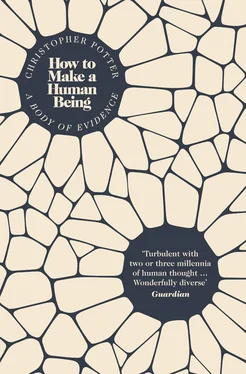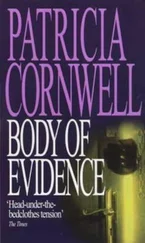On the other side are the idealists, who believe that the physical world is somehow a manifestation of something immaterial. We are the transcendentalists, they cry (‘Give us a T …’). Idealism, transcendentalism: words that sound airy-fairy.
2 | At school I remember games period, lining up, waiting to be chosen, down to the last four, the final humiliation of being the very last hardly averted by the gamesmaster: ‘The rest of you just divide up equally’; then the desperate rush to attach myself to what I hoped was to be the stronger side, wanting to be on the winning team but not wanting to take part, hoping that I might be in goal, left alone to sing hymns to myself while everyone else battled it out at the other end of the pitch.
3 | I remember, too, poring over a copy of the Ladybird book of Roundheads and Cavaliers, puzzled. Clearly, my heart told me, it was better to be a Cavalier: the clothes, the hair, the colours! And yet rationally I knew that to be a Roundhead was the right, the moral choice. 2
4 | There are these days:
I am satisfied and sufficiently occupied with the things which are, without tormenting or troubling myself about those which may indeed be, but of which I have no evidence.
Thomas Jefferson (1743–1826), American founding father
There was no room for the mystical, the mysterious, the illusory in his temperament. Anything that did not stand the test of practical experience or the scrutiny of analysis he rejected as an optical illusion, some kind of interplay of light and colour on his retina, or else a phenomenon that still lay beyond the reach of experience. There was in him nothing of the dilettante who loves to delve into the realm of the fanciful and idle speculation about the wonders and marvels that lie a thousand years into the future. He took a firm stand on this side of the threshold of the mysterious, free equally of a childlike credulity and the doubts of the over-sophisticated, and patiently reserved judgment until the evidence came in and provided a key to the mystery.
Konstantin Levin in Tolstoy’s Anna Karenina
5 | There are also these days:
i Days when I feel like Fotherington-Thomas 3– ‘who sa hello clouds hello sky’, and who ‘like all goody-goodies he believe in fairies father xmas peter pan etc and unlike most boys they are kind to their sisters’ – days when ‘I simply don’t care a row of buttons whether it was a goal or not nature alone is beautiful.’
ii Or like the evolutionary biologist Richard Lewontin when he writes that science is ‘filled with the violence, voyeurism, and tumescence of male adolescent fantasy. Scientists “wrestle” with an always female nature, to “wrest from her the truth”, or “to reveal her secrets”. They make “war” on diseases and “conquer” them. Good science is “hard” science; bad science (like the refuge of so many women, psychology) is “soft” science, and molecular biology, like physics, is characterised by “hard inference”. The method of science is largely reductionist, taking Descartes’s clock metaphor as a basis for tearing the complex world into small bits and pieces to understand it, much as the archetypal small boy takes apart the real clock to see what makes it tick.’
6 | But there are days, perhaps most days, when it is not clear which side to be on.
7 | When told of Bishop Berkeley’s fashionable new philosophy of immaterialism Dr Johnson 4said, ‘I refute him thus,’ and kicked a rock. I’ve always had a soft spot for Dr Johnson. He preferred people to places, and loved his cats. When he first read Hamlet he was so frightened by the ghost of Hamlet’s father that he rushed outside in order to have living people about him. According to his friend Jonas Hanway, he was ‘a hardened and shameless tea-drinker’. He devoted himself to conversation. He was terrified of eternal damnation. As an entertainment to his guests, he pulled up his tailcoats to form a pouch and jumped about in imitation of a kangaroo. When he was four years old his mother called him a puppy and he said to her: ‘Do you know what they call a puppy’s mother?’ He rolled down a hill in Lincolnshire when he was in his fifties. He leapt a wall in his seventies. When William Hogarth met him he mistook him for an idiot, ‘shaking, twitching, pock-marked, half-blind and distinctly careless about his dress’. He compiled a dictionary of the English language from scratch, and although after two years he got stuck on the word ‘carry’, he persevered. In 1755, nine years after he had begun, the dictionary that made his name was published in two volumes, each volume weighing in at fourteen pounds. He said he had tried studying philosophy, ‘but cheerfulness was always breaking in’. In that unsubtle, if entertaining, gesture Johnson kicks more than a rock; he directs a kick in the general direction of all philosophical argument that goes against common sense. And it’s common sense, the gesture insists, that makes us human, and not some illusive philosophical argument. Dr Johnson kicked His Grace into the sidelines of history.
8 | And yet, if Dr Johnson has about him the no-nonsense mien of the Roundhead, it is surely as a shield to protect the heart of a Cavalier. Tolstoy’s Levin could hardly be less like Dr Johnson (for one thing he is fictional), but he too combines traits of both Cavalier and Roundhead, idealist and materialist. Levin wants to believe but cannot. Yet it is his unbelief that tortures him. As a child and adolescent he had turned to Christianity to try to address the questions of life: ‘whence it came, wherefore, why, and what it was’. Finding no answers there, he turned as a young man to science: ‘involuntarily, unconsciously, he now sought in every book, in every conversation, in every person, a connection with these questions and their resolutions’. By his mid-thirties he found that even scientific answers no longer satisfied him: ‘he became convinced that those who shared the same views with him simply dismissed the questions which he felt he could not live without answering … He was in painful discord with himself and strained all the forces of his soul to get out of it … He read and pondered, and the more he read and pondered, the further he felt himself from the goal he was pursuing … Convinced that he would not find an answer in the materialists, he reread, or read for the first time, Plato, and Spinoza, Kant, Schelling, Hegel and Schopenhauer – the philosophers who gave a non-materialistic explanation of life.’ But nor does philosophy bring consolation: ‘Following the given definition of vague words such as spirit , will , freedom , substance … he seemed to understand something. But he had only to forget the artificial train of thought and refer back to life itself … and suddenly the whole edifice would collapse like a house of cards.’
But Levin did not shoot himself or hang himself and went on living … not knowing and not seeing any possibility of knowing what he was and why he was living in the world, tormented by this ignorance … and at the same time firmly laying down his own particular, definite path in life.
Leo Tolstoy (1828–1910), Anna Karenina
SECTION 4
Nothing → something → everything
1 | Physicists don’t pack up just because some philosopher or other points out that what they are doing is paradoxical. Particle physicists accept that elementary particles are not required to extend into space, nor to exist. If that means redefining what it means to exist, then so be it.
2 | In the main, scientists working at the coalface have little time for the fine distinctions made by philosophers. They are interested in what is in front of them. They are Dr Johnson not Bishop Berkeley, Romeo not Friar Laurence.
Читать дальше












